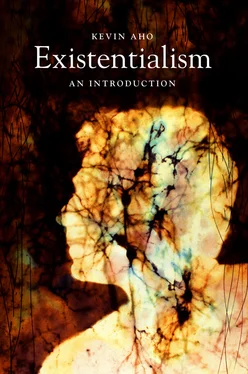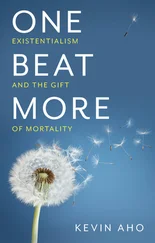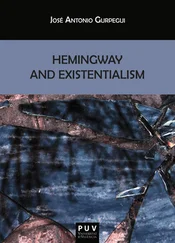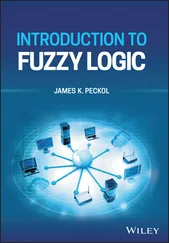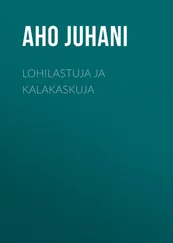[The existentialist] theory is the only one that gives man dignity, the only one that does not reduce him to an object. The effect of all materialism is to treat all men, including the one philosophizing, as objects, that is, as an ensemble of determined reactions in no way distinguished from the ensemble of qualities and phenomena which constitute a table or a chair or a stone. We definitely wish to establish the human realm as an ensemble of values distinct from the material realm. (2001, 303)
But affirming free will in the face of the overwhelming scientific evidence for determinism is difficult, and no existentialist captures this tension better than Dostoevsky in his Notes from the Underground . Indeed, Walter Kaufmann refers to the story as “the best overture to existentialism ever written” (1956, 14) because of the way it addresses the problem of free will.
Dostoevsky's nameless underground man lives in mid-nineteenth century St. Petersburg, Russia, as it is going through a period of dramatic modernization, where an older way of life based around close-knit religious communities is being replaced with the newly imported secular values of scientific materialism. As someone who self-identifies with the ‘intelligentsia’ of Russia, the underground man understands the truth of scientific principles, which he refers to as ‘the Laws of Nature,’ but he is unwilling to accept them when it comes to human actions because they deny the possibility of free will and turn human beings into mechanical cogs whose behavior can be controlled and, ultimately, predicted on the basis of mathematical formulas. These principles imply that “[a human being never] really had any caprice or will of his own … that everything he does is not done by his willing it, but is done of itself, by the Laws of Nature” (Dostoevsky 2009, 18–19). But the underground man is equally critical of forms of coercion and control based on appeals to reason. Expressing the idea that ‘existence precedes essence,’ he argues that if we subject our decisions to how well they cohere with rational principles — such as Kant's categorical imperative or the happiness calculus of utilitarianism — we are assuming that we have a pre-given essence, namely that we are rational. The underground man rejects this idea, arguing that human motivations and purposes cannot be explained and justified by means of reason. On his account, existentialist freedom entails both freedom from the deterministic laws of nature and freedom from rational principles (Solomon 1972, 280; Guignon and Aho 2009, xxii — xxv).
The underground man makes his case by attacking Enlightenment social reformers who dream of creating a rationally ordered society, a ‘Crystal Palace’ based on principles of calculative reason and deterministic laws. He understands that these utopian ideals may very well result in a life of mechanized predictability, comfort, and security, but he believes human beings will eventually revolt against living life like a ‘piano-key’ because it violates the basic human need we have to choose and create our own lives:
[Even] if man really were nothing but a piano-key, even if this were proved to him by natural science and mathematics, even then he would not become reasonable, but would purposely do something perverse out of simple ingratitude, simply to win his point. And if he does not find means he will contrive destruction and chaos, will contrive sufferings of all sorts, only to win his point! He will launch a curse upon the world, and as only man can curse it may be by his curse alone he will attain his object — that is, convince himself that he is a man and not a piano-key ! (Dostoevsky 2009, 23)
To be sure, the underground man acknowledges and appreciates the evidence for scientific determinism, but he simultaneously affirms the need for choice, even if these choices diminish overall happiness and result in acts of “destruction and chaos” (20) because without choice we are not human beings. This is why he says, “One's own free unfettered choice is [the] ‘most advantageous advantage.’ … What man wants is simply independent choice, whatever that independence may cost and wherever it may lead. And choice, of course, the devil only knows what choice” (20).
Dostoevsky's story captures the existentialist thesis that unlike other objects in nature, our essence is not fixed and determined; it is always in the process of being made. In this sense, we are not beings or things at all; we are nothing because we are continually negating ourselves through our moment-to-moment decisions. Yet, in affirming human freedom in this way, the underground man has to confront the anguish that there is no underlying justification for his actions. On the determinist view, every motivation for acting rests on some other cause, but the underground man realizes that the underlying cause in turn requires another cause, and another, and so on to infinity. Committed to free will, the underground man believes he is the ‘ causa sui ’ of his existence, and there are no limits or constraints that can hinder him. Limits emerge only if he chooses to interpret and accept them as limits (Guignon and Aho 2009, xxiv). Thus, if reason, social convention, or the laws of nature determine that he should act in a certain way, the underground man does the opposite. If he is sick, he refuses to see a doctor; if he is at a dinner party, he acts in outrageous and embarrassing ways; if someone reaches out to him with love and tenderness, he lashes out with rage. And he refuses to blame anyone or anything for his actions. He takes responsibility for his choices even though they are self-destructive and leave him feeling alienated and ashamed.
Here, it is important to note that the underground man does not represent Dostoevsky's own views on freedom. As a religious existentialist, Dostoevsky sees the reflexive rebellion of the underground man as a distortion of human nature. As we saw earlier, to impulsively act in contrarian ways is not actually freedom. True freedom, for Dostoevsky, is exhibited when the individual is freed from these impulses for the sake of something ‘higher’ in the world. This is why Father Zossima, who speaks for Dostoevsky in The Brothers Karamazov , says:
The way to real, true freedom: I cut off my superfluous and unnecessary desires, I subdue my proud and wanton will and chastise it with obedience, and with God's help I attain freedom of spirit with spiritual joy. Which is most capable of conceiving a great idea and serving it — the rich man in his isolation or the man who has freed himself from the tyranny of material things and habits? (1957, 290)
Dostoevsky sees a life ruled by impulsive rebellion as one that is ultimately self-defeating. Every time the underground man rebels against a limitation in order to assert his freedom, a new limitation emerges, resulting in a desperate cycle where he is enslaved by the need to lash out at anything that may limit or constrain him. True freedom, for Dostoevsky, emerges when we subordinate or let go of our egoistic need for self-assertion and humbly accept the mystery of God which is nothing more than an acceptance of the whole of life itself with all of its shared joys and suffering. Only this kind of freedom, a ‘freedom of spirit,’ can pull us out of the empty cycle of self-affirmation and open us up to the realization that salvation demands that we transcend our egoistic needs for the sake of others, to see that we are not willful subjects who are isolated and alone, but vulnerable beings who are mutually attached and dependent on each other (Guignon 1993).
Although it is not representative of his own views, Notes from the Underground offers a powerful, if ultimately tragic, testimony of the value of free will in the face of an increasingly rational and deterministic world. And no existentialist developed this theme more definitively than Sartre, who referred to human freedom as ‘radical’ and ‘absolute’ because it emerges ex nihilo from the contingent upsurge of choice itself.
Читать дальше
